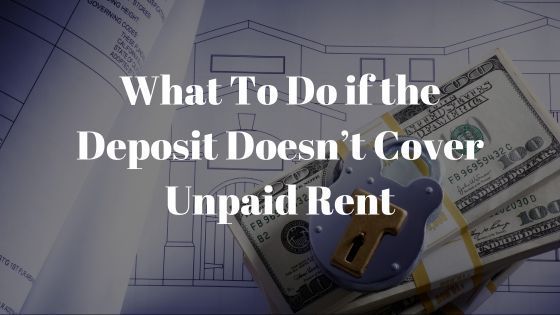
Tax Benefits of Investing in Charlotte Real Estate
The goal of investing in Charlotte, NC real estate is to make money. Nevertheless, you can only become profitable if you are able to keep your property’s expenses in check. One such expense associated with running a rental property is property tax.
As an investor, it’s your responsibility to pay taxes on your property. Failure to do so can land you on the wrong side of the law with the Internal Revenue Service.
Luckily, there is a way in which you can reduce the amount you pay to the IRS. IRS allows real estate investors to claim several expenses associated with the rental property as deductions against the rental income.
Read on to find 5 tax benefits of investing in Charlotte real estate.
1. Lower Capital Gains
This is the rise in the value of a capital asset that gives it a higher worth than the purchase price. Capital assets include vehicles, computer equipment, machinery, buildings, and land.
It’s important to note that you can only realize the gain once you have sold off the asset. Capital gains can be categorized into two: short-term or long-term.
A short-term capital gain is a tax on profits from the sale of an asset held for one year or less. They are taxed at the investor’s ordinary income tax rate at rates of up to 37%.
A long-term capital gain, on the other hand, is what you earn on assets you have held for more than a year. Depending on your income tax bracket, these are taxed at 0%, 15% or 20%.
Note that you may be taxed on recaptured 1250 gains if there is a gain on the sale of a building. Recaptured 1250 gain is the depreciation that exceeds straight-line depreciation on the property. The maximum you could be taxed is 25%.
2. Depreciation
Like most assets, real estate breaks down with time. It’s for this reason that the IRS allows investors to claim depreciation on their properties. If the real estate is residential, then you may be able to depreciate its value over a period of 27.5 years.
For commercial property, its depreciation can be realized over a period of 39 years.
Depreciation expense is typically a significant tax deduction that the IRS makes available to investors. By taking advantage of it, it can significantly improve your cash flow by minimizing your tax responsibilities.
When calculating the depreciation of a rental property, the useful life of common assets is as follows:
- Commercial buildings: 39 years
- Residential rental buildings, structures, furnaces, and water pipes: 27.5 years
- Fences and roads: 15 years
- Office furniture and equipment: 7 years
- Appliances, carpeting, and furniture: 5 years
What properties qualify for depreciation?
Not all properties qualify for depreciation. Examples of these properties include landscaping, land, and your primary residence.
To qualify for depreciation, the property must be in service for over a year. In other words, you can’t rent out a property in February and sell it in July and claim depreciation on it that year.
With that in mind, here are the properties that you can claim depreciation on:
- Multifamily properties like duplexes or triplexes
- Income-generating commercial real estate like a shopping center or an office building
- Owner-occupied commercial real estate like where your business operates
- Income-generating residential real estate
3. 1031 Exchanges
A 1031 Exchange transaction is governed by IRS Code 1031. It allows real estate investors to defer capital gains taxes on the sale of a commercial property.
For a property to qualify for a 1031 exchange, it must meet the following rules.
- An intermediary must keep the 1031 funds. The intermediary holds onto the funds until a new property is acquired.
- The properties must be considered “like-kind.” For instance, you can’t exchange a property for a real estate investment trust (REIT). Additionally, any property or cash received from a property that isn’t “like-kind” is considered moot. It’s subject to taxation.
- The property being exchanged must have been an investment.
- You must identify the property to be purchased within a period of 45 days and close within 180 days.
- The property being replaced and the property or properties bought in its place must have the same or greater value.
4. Opportunity Zone Investments
Opportunity zone investments offer an unprecedented set of new tax advantages for those with capital gains. Investing in a property designated as an “Opportunity Zone” can enable you to defer capital gains, according to the Tax Cuts and Jobs Act of 2017 (TCJA).
The legislation was passed in hopes that a lower effective capital-gains tax might lure capital investors to projects in about 8,700 economically disadvantaged US census tracts.
Unlike capital gains, the beauty of this benefit is the properties don’t have to be “like-kind”. You can use the proceeds you get from selling your investment into other investments like precious metals trading and stocks.
5. Deductions
The IRS also allows you to make numerous tax deductions for any legitimate business expense linked to running a rental property. Such expenses include cleaning services, mortgage interest, repairs, accounting fees, property tax, and the list goes on.
The following are some of the common deductions available for landlords:
- Repairs – You can deduct the costs of repairs you make to your rental property. The repairs must be necessary, ordinary, and reasonable to qualify. Examples of deductible repairs include fixing gutters, fixing plumbing leaks, repainting, or plastering.
- Travel – The IRS also allows you to make deductions on any driving you do for your rental activity. For example, when you drive to your property to deal with tenant issues. Or, when you drive to the hardware store to buy a part for a repair.
- Home office – Provided you meet certain minimum requirements; you may be able to deduct your home office expenses from your property’s taxable income.
- Insurance – You may also deduct the premiums you pay for any insurance-related activity like flood insurance.
There you have it. 5 tax benefits of investing in Charlotte real estate. Taking advantage of all these tax benefits can help you save thousands of dollars of tax every year. If doing this by yourself seems daunting, then please consider hiring professional property management services.

Dawson Property Management










